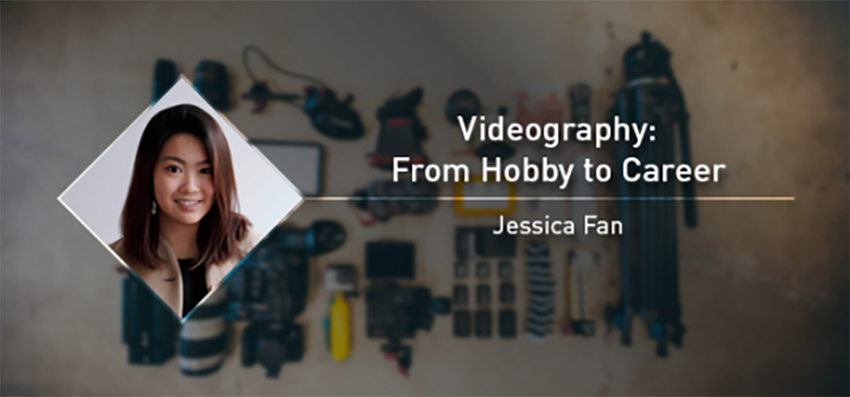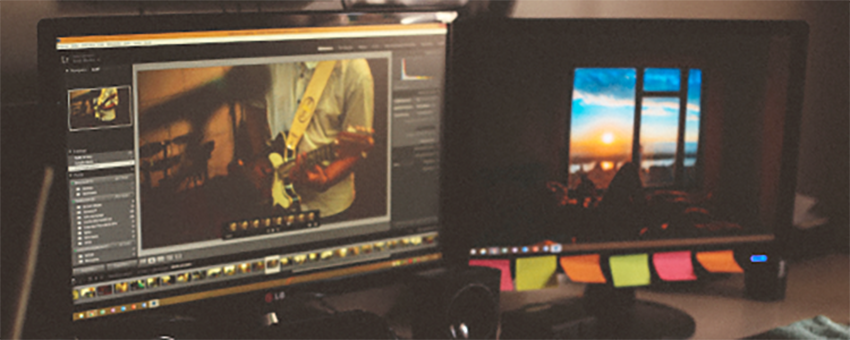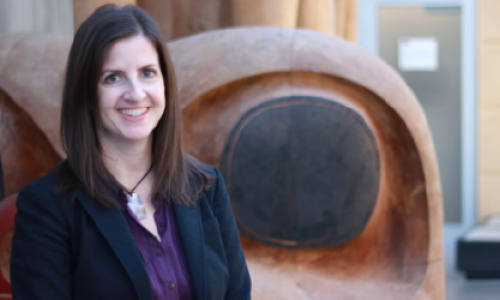
I can’t remember a time when I didn’t want to become a videographer of some sort. As a child, I spent hours upon hours immersed in the world of storytelling and special effects (my high-tech equipment included Windows Movie Maker and a point-and-shoot camera that was considered a revolutionary product at the time). Everything from generating an idea to watching it come to life has always been fulfilling to me. In my mind, however, it was just a hobby: an unrealistic career path because I didn’t possess the skills nor the courage to try.
Fast forward to my second co-op placement and I’m working as a Videographer and Visual Communications Co-op at Vancouver Coastal Health. What happened between now and then wasn’t an influx of skills, but more so a willingness to try. It has been incredibly rewarding to be able to practice my hobby for eight hours a day. Collaborating with like-minded people on a project that will improve the future of patient care is a great bonus. As a first-time videographer, I’ve been introduced to a whole new way of working. Here are some things I’ve picked up on the way.
Videography Means You’re Constantly on the Move…
Perhaps the best part of this job is that I’m almost never confined to my desk. And when I am, I’m exercising my right brain creativity to edit a video or draft a new design. Being the office’s resident videographer has allowed me to travel in and out of the office to work with a variety of healthcare professionals: doctors, nurses, registration clerks, business analysts and more. Hearing about their work and listening to their needs allowed me to better understand the logistics of healthcare and tell a story through video that best represents them.
…It Also Means You Never Stop Learning.
There are infinite opportunities to expand your knowledge and skillset in videography. What the industry looked like ten years ago is almost nothing like it is now, thanks to the introduction of new technology. There is so much room for growth and change, which is all very exciting. The best way for me to adapt and learn was to binge-watch tutorials like Netflix…and Google—lots of Google. I’ve learned that practice is the best way to thrive at something, and it will show in the content you create.
And Behind Every Excellent Videographer Is an Excellent Communicator.
My biggest takeaway from the last four months is one that I never expected to learn. I held the misconception walking into this job that I would only be filming and editing, never getting the opportunity to exercise my communication skills. Boy, was I wrong. Videographers are storytellers; especially in a corporate setting, they are accountable for the message that comes across. Sure, I’ve been able to polish my editing skills, but I’ve learned even more about strategic communications: asking the right questions and telling the story at the right time, through the right medium, in the right way.
Try Something New and See Where It Takes You.

My biggest piece of advice? Don’t be afraid. Be open to trying new things. After all, co-op is an opportunity to do just that. You never know what you will learn, what interests you, and where you will go. As someone who had been fixated on a public relations career, co-op has led me to very unexpected and exciting new paths.














